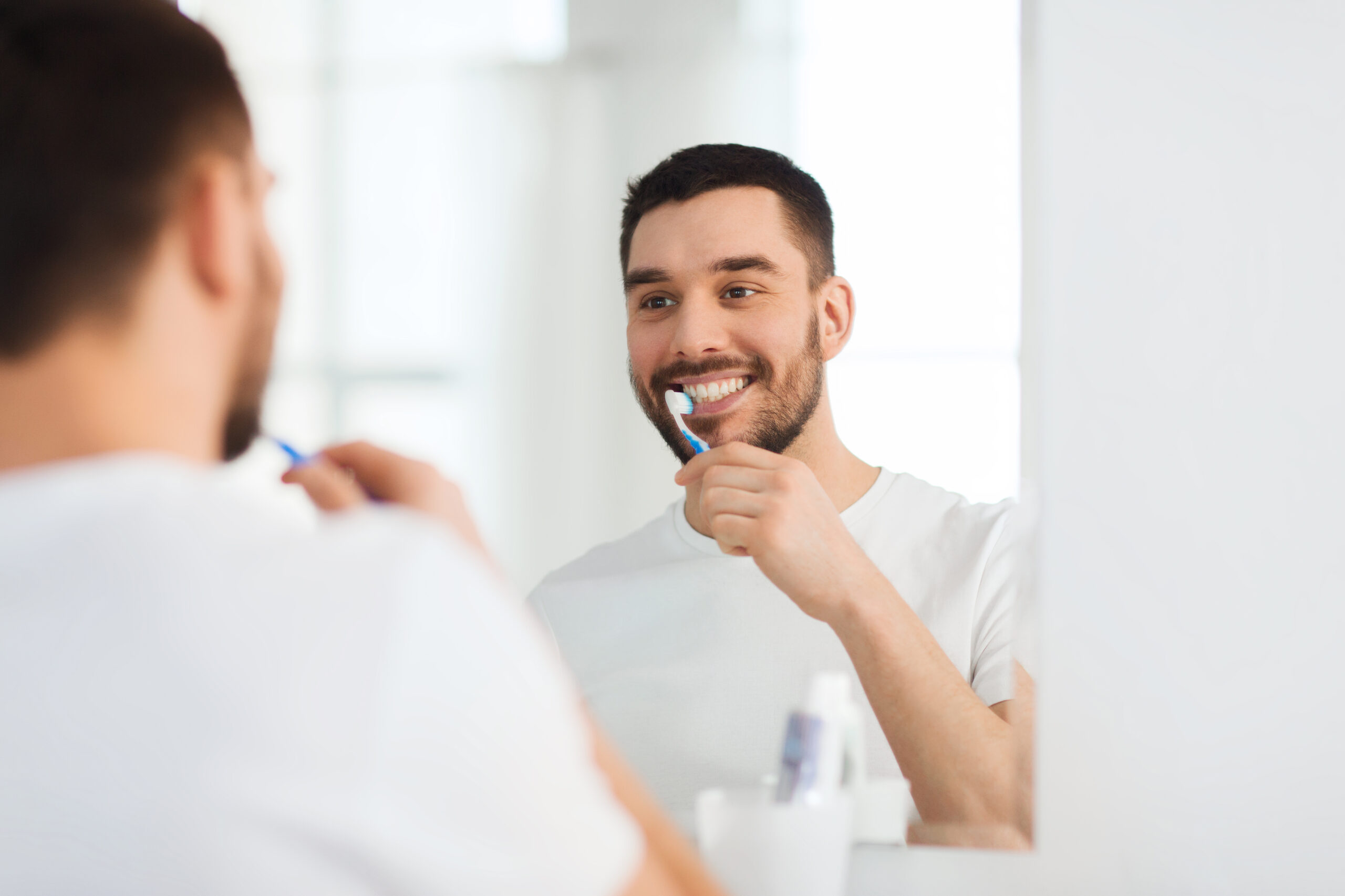Halitosis, commonly known as bad breath, is commonly associated with certain foods. Garlic, onion, and cabbage can all cause a foul odor and taste for several hours after you’ve eaten them. This type of temporary halitosis is easily solved by avoiding the foods that cause it. However, in some cases bad breath is a chronic problem that simply changing your diet won’t solve.
Long-term bad breath is caused by the presence of bacteria in your mouth. These bacteria are most often found on the back of the tongue and thrive when your mouth is dry. There are a variety of ways you can help reduce or eliminate chronic bad breath. Some of these include:
Practice good oral hygiene.
Our dentist in 68739 wants you to brush your teeth after you eat as often as possible and at least twice daily. Clean between your teeth using dental floss or another interdental (between teeth) cleaner at least once each day. Food particles between teeth will break down slowly and cause unpleasant odors and tastes.
Brush your tongue.
Even if you brush and floss your teeth as recommended, the bacteria causing your bad breath may remain on your tongue. Use a tongue scraper or toothbrush to gently scrape away any particles of food or bacteria every time you brush. For best results, place the scraper or brush as far back as you can manage without gagging. This will generally become easier over time.
Keep well-hydrated.
Dry mouths allow bacteria to thrive. By drinking plenty of water, you can help prevent the bacteria growth and reduce or stop bad breath.
Avoid bad breath triggers.
Onions, garlic, cabbage, coffee, and tobacco products are all known to cause bad breath.
Chew sugarless gum.
By chewing sugarless gum, you increase saliva production and keep your mouth moist. This helps slow or prevent bacteria growth, minimizing chances of bad breath.
Improve your diet.
Crunchy fruits and vegetables, yogurt, and foods rich in vitamins C and D all work to prevent the growth of bacteria, keep your mouth cleaner, and increase saliva flow.
See your dentist.
Follow your regular schedule of dental hygiene appointments and dental exams. If you have tried the tips above without improvement, make an appointment for an exam to see if there may be an underlying condition that requires treatment. Treat any oral illnesses, such as decayed teeth, periodontal (gum) disease, or infection.
For more information about the potential causes and treatments for halitosis, contact our Hartington, NE dental office.







